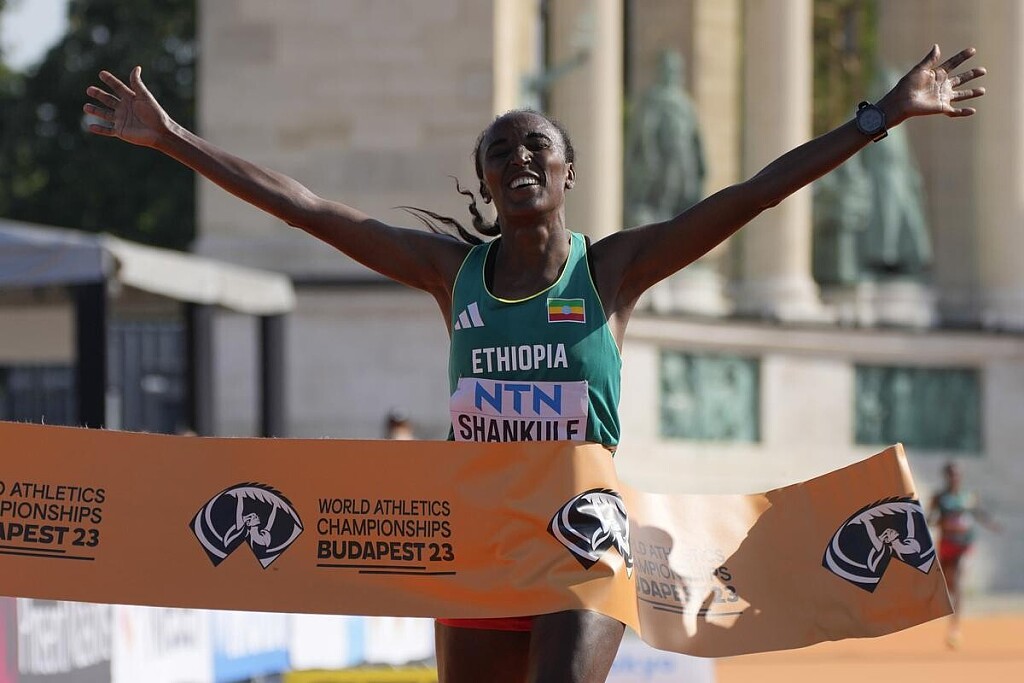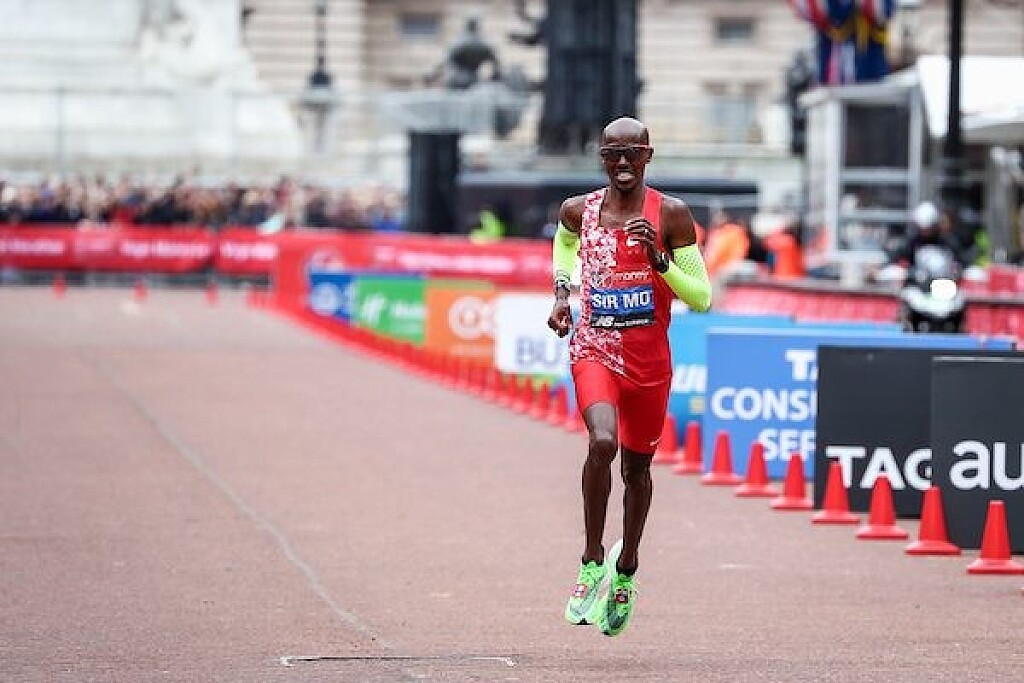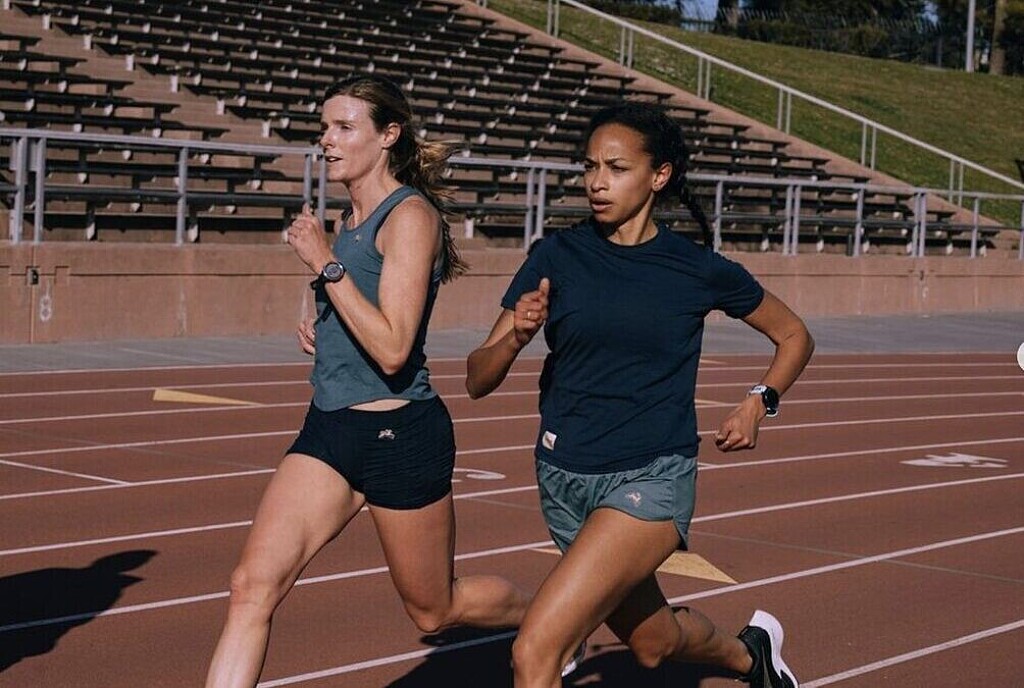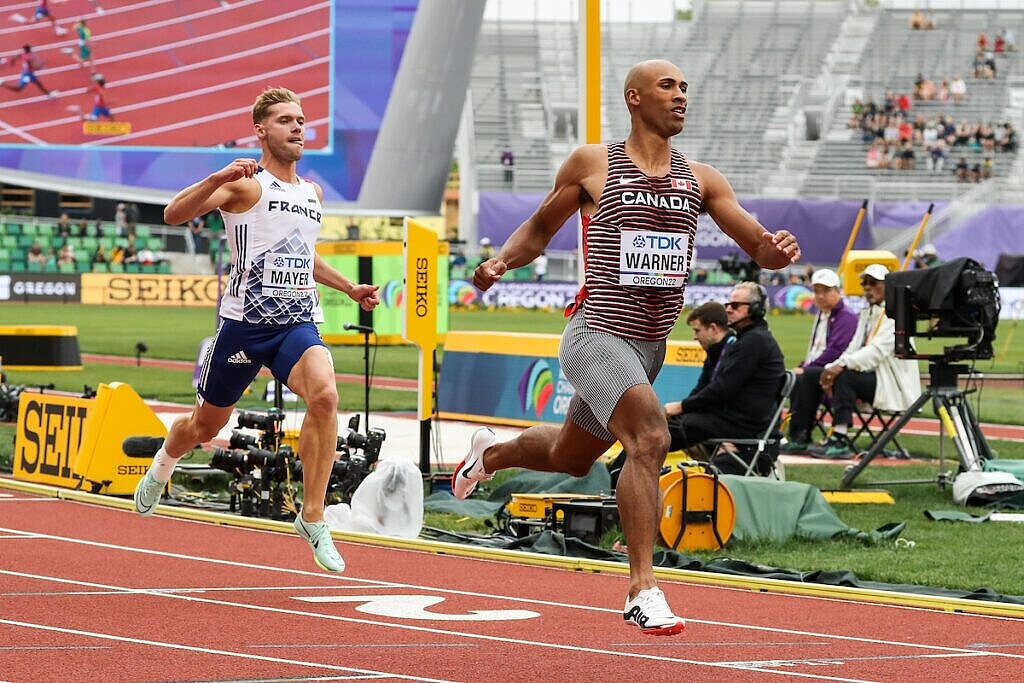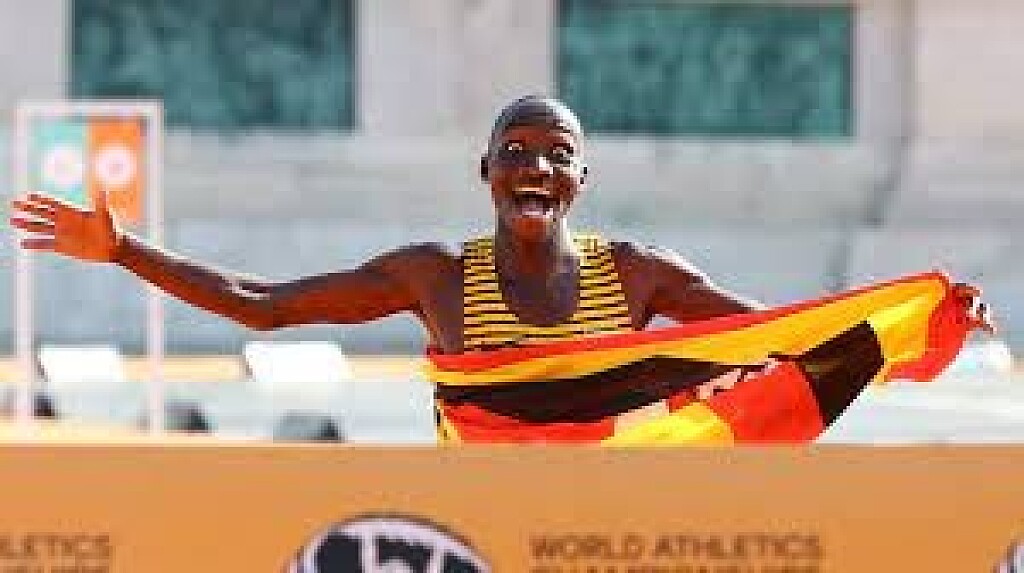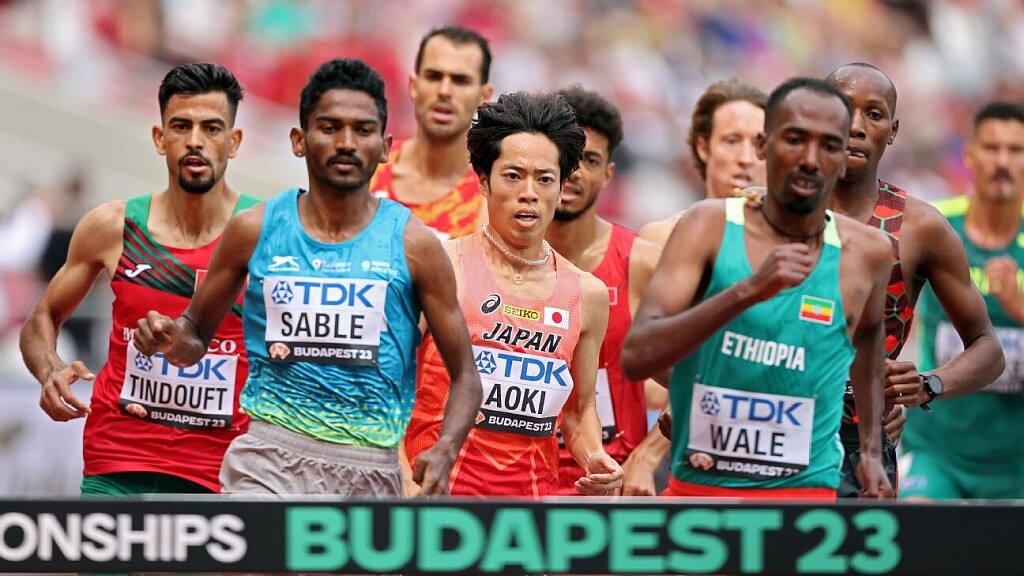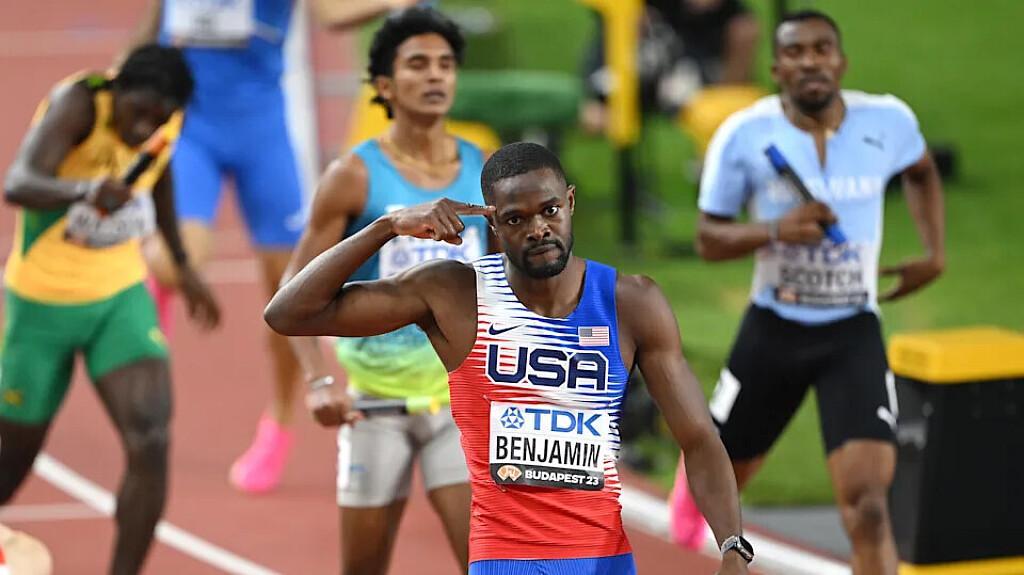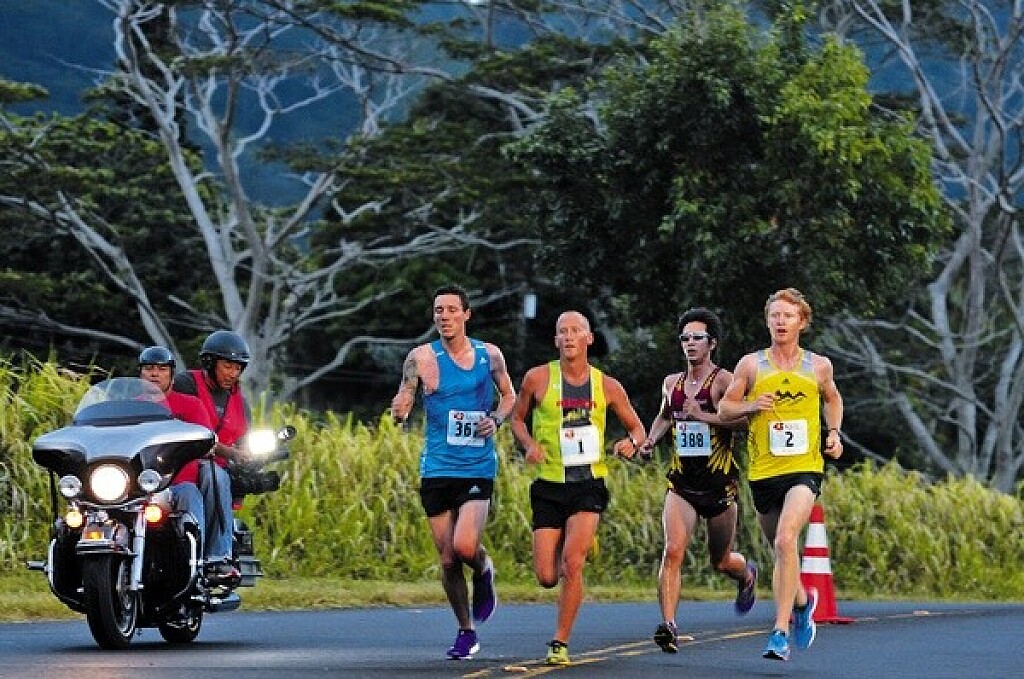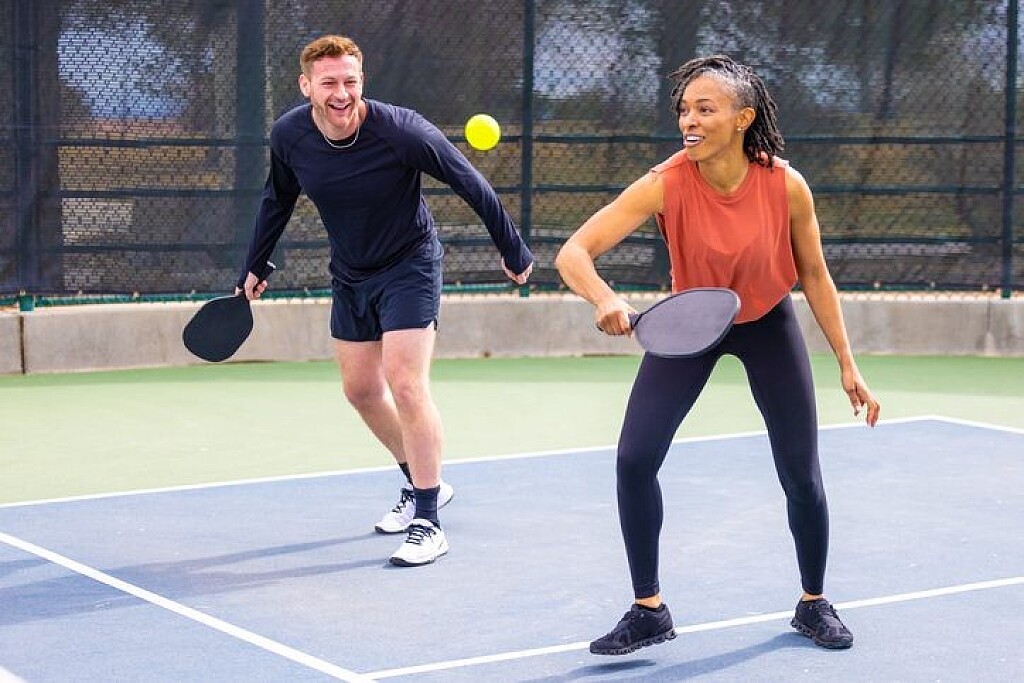Running News Daily
Top Ten Stories of the Week
9/2/2023
These are the top ten stories based on views over the last week.
Ethiopia dominates women’s marathon on Saturday morning in Budapest at the 2023 World Athletics Championships
The third-fastest marathoner in history, Ethiopia’s Amane Beriso, claimed her first world title on Saturday morning in Budapest at the 2023 World Athletics Championships. Beriso broke away from the field in the final 10K to win in 2:24:23 on a warm morning in the Hungarian capital.
The race started as a tactical affair, with nearly 20 women passing the halfway point on a 2:29 marathon pace in 1:14:30. As the final lap of four began, Ethiopia had four women in the lead group of seven athletes until Tsehay Gemechu dropped out as Beriso started to surge. It seemed like there would be an Ethiopian podium sweep with three kilometres to go, but 10K world record holder Yalemzerf Yehualaw faded from third to fifth, losing nearly two minutes to her competition in the final kilometers.
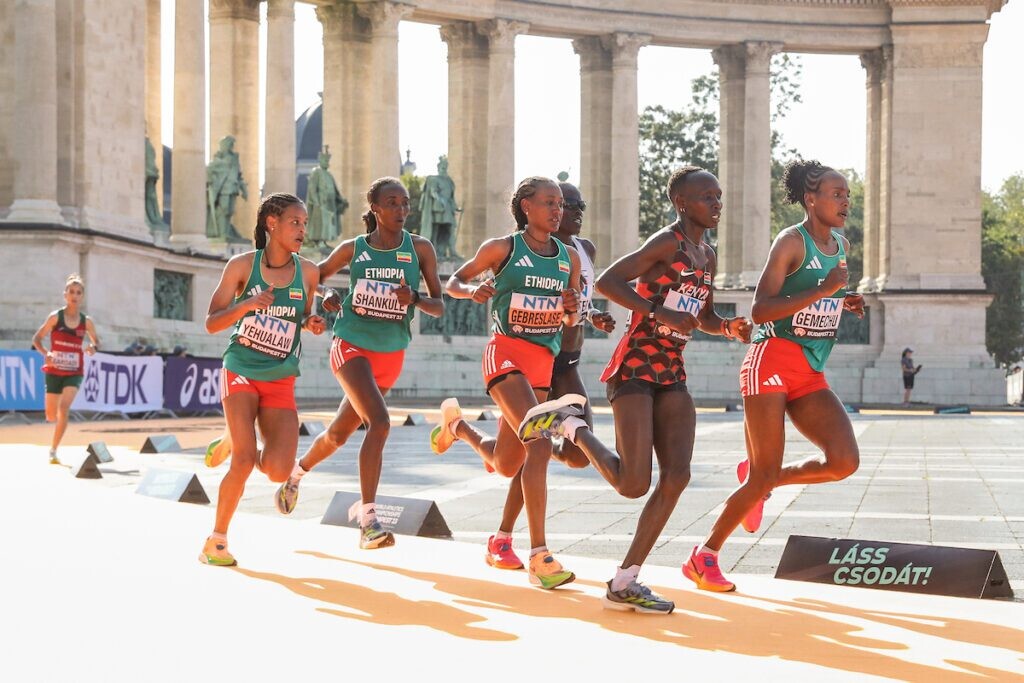
Morocco’s Fatima Gardadi took advantage of Yehualaw’s faltering, having the race of her life to win bronze in 2:25:17, behind 2022 world champion Gotytom Gebreslase, who won silver in 2:24:34.
Beriso has had quite a track record in her last three marathons. Last December, Beriso pulled off an upset over her compatriot Letesenbet Gidey at the 2022 Valencia Marathon to win and become the third-fastest woman in history in 2:14:58. Beriso was also the runner-up at the 2023 Boston Marathon, finishing behind Kenya’s Hellen Obiri.
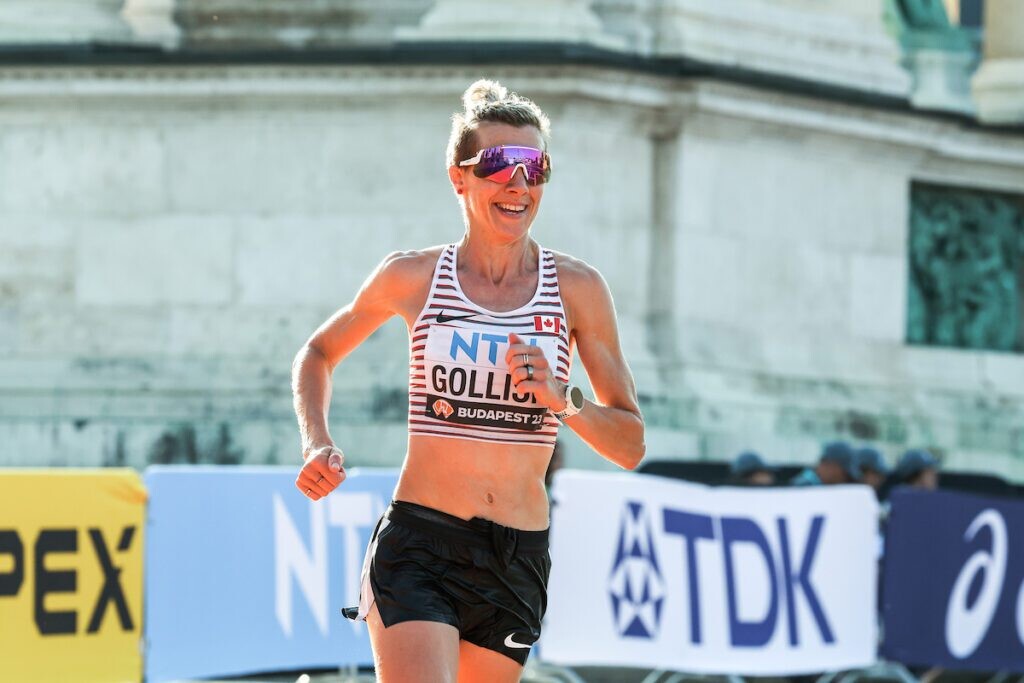
Wodak: “I ran as hard as I could.”
Vancouver’s Natasha Wodak was in the mix with the lead group in Budapest as she started her third lap but started to feel nauseous and fell back to the chase pack at 27km. She finished 15th overall in 2:30:09. “I ran as hard as I could,” Wodak told Canadian Running post-race. “It was tough, and I am a little disappointed.”
Wodak, 41, said her goal was to finish inside the top 10, and even though she positioned herself to achieve that, she admitted she didn’t have the legs in the final 10K. “To be 15th in the world is still a good day,” said Wodak.
Toronto’s Sasha Gollish made her return to the marathon at the world championships and savoured every minute of it. In 2019, she experienced heartbreak after failing to finish the marathon at the World Athletics Championships on a hot morning in Doha, Qatar. Today, Gollish achieved redemption, finishing 61st overall in 2:45:09 and bringing her energy for every second.
“I hope my journey inspires everyone who has not run a marathon to go out and test themselves,” said Gollish to Canadian Running. “Cause anything is possible.”
Gollish received an invitation to represent Team Canada in this marathon only a month ago after Canada’s Kinsey Middleton and Elissa Legault withdrew due to injury. Gollish was the third Canadian finisher at the 2022 TCS Toronto Waterfront Marathon, where she ran a personal best of 2:31:40.
For full results from the women’s marathon at the 2023 World Athletics Championships, check here. The men’s marathon will take place tomorrow morning in Budapest at 7 a.m. C.E.T. and 1 a.m. E.T. Ben Preisner, Justin Kent and Rory Linkletter will represent Team Canada in the event.
(08/26/23) Views: 93Marley Dickinson
Edris and Kamworor take on Farah at Great North Run
Tough opposition for the Brit on his final competitive appearance on September 10.
Mo Farah will renew his rivalry with two of his old adversaries – Geoffrey Kamworor and Muktar Edris – in his last competitive appearance in the AJ Bell Great North Run next week.
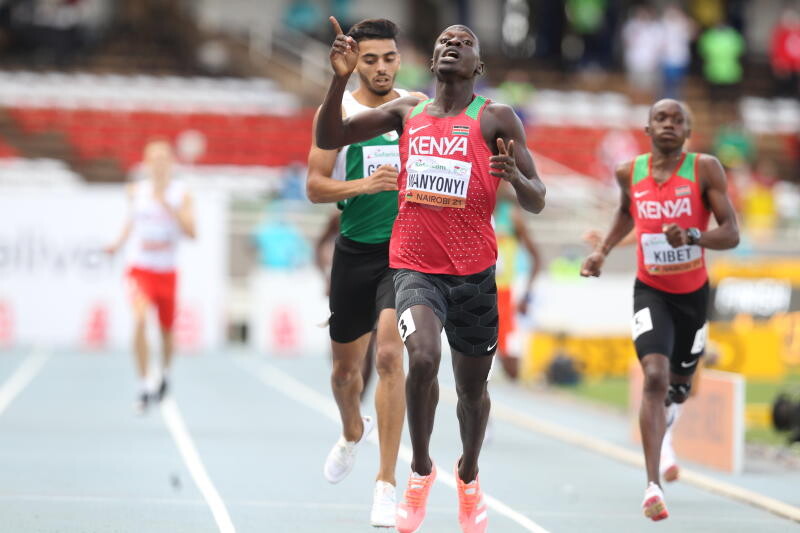
Kamworor is a three-time world half-marathon champion and two-time winner of the New York City Marathon in addition to finishing runner-up in the London Marathon five months ago.
The Kenyan says: “I’m really looking forward to taking on my first Great North Run in Newcastle, as I’ve heard many good things about the event.
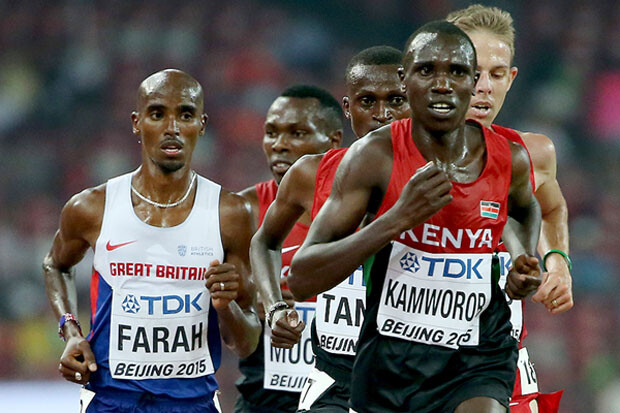
“Sir Mo Farah he has had such an incredible career, it’s exciting to be a part of his last ever race, but I’m obviously here to win and add my name to the list of champions.”
Edris, meanwhile, won the world 5000m title in 2017 ahead of Farah and then successfully defended his title in 2019. Over half-marathon he has a best of 58:40 and says: “I’ve raced Mo on the track but this is the first time we have met on the roads.
“I have great respect for him. After we raced in London 2017 World Championships, I named my son after him and I look forward to renewing our friendship and rivalry.”
One week before the Great North Run, Farah, who is now 40, races in the Big Half in London (September 3) with the event acting as the half-marathon trial for the World Road Running Champs in Latvia on October 1.
(08/30/23) Views: 92Jason Henderson
Hit the track with these beginner workouts
Inspired by the athletes racing around the track at Worlds in Budapest? The track is for everyone, even new runners. Here are a few simple workouts you can take to the oval surface to get comfortable: make sure to brush up on track etiquette and how the track works beforehand.
200 meters: one straight + one curved section of the track (1/2 a lap)
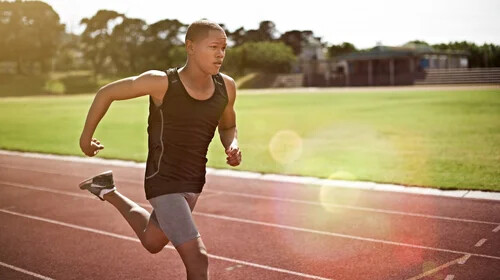
400 meters: one lap around the track
800 meters: two laps around the track (approx. ½ mile)
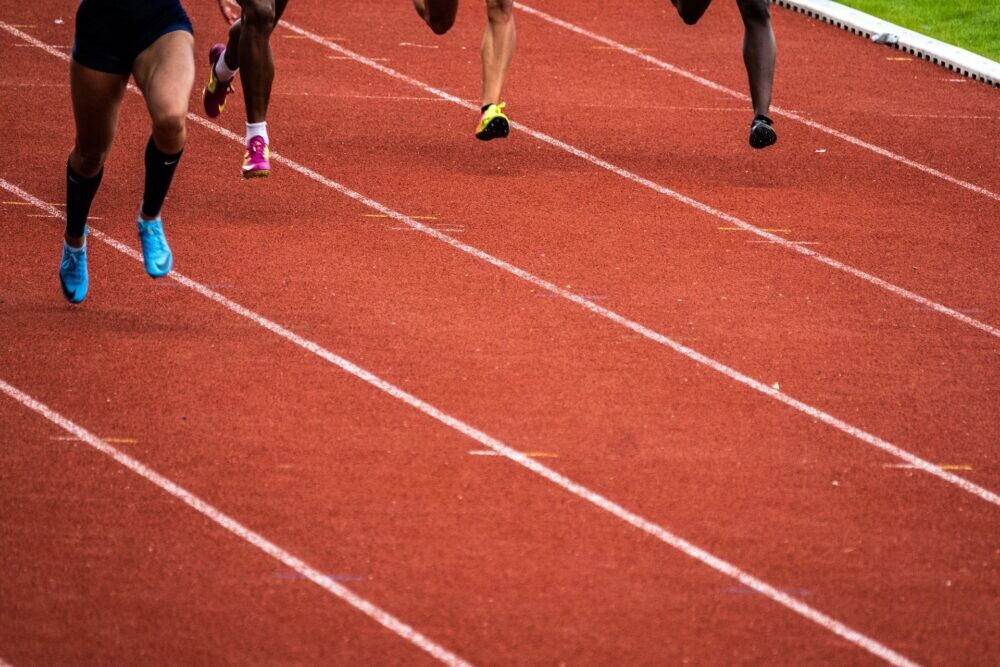
1600 meters: four laps around the track (approx. one mile)
Straights and corners
This is a great workout for introducing some speed into your training without overdoing it on volume.
This one is simple: run the straights at a faster pace (5K pace or faster) and then jog the corners. On a typical 400m track, this means you’ll be doing 100m of fast running, followed by 100m of recovery.
Aim for six to eight 100m repeats to start, adjusting according to ability.
200 meter Repeats (or 1:1 repeats)
Warm up with ten minutes of easy running.
Run hard for 200 meters
Recover with 200m easy running
Repeat six to eight times
Cool down with ten minutes of easy running.
Adjust this workout to accommodate longer distances using a 1:1 formula. Try running 400m hard with 400m recovery, with the same warmup and cool down.
800 Meter Repeats
Warm up with 800 meters (two laps) at easy effort.
800 meters (two laps) at hard effort
400 meters (one lap) recovery at easy effort
Repeat four times to start, adjusting for ability or goals
Cool down with 400 meters (one lap) walking recovery
Make sure to follow a speed workout with an easy running day or recovery.
(08/28/23) Views: 91Running Magazine
How to train your mind like an elite athlete
What separates an elite athlete from the rest of us? Most people will argue they have a superhuman-like level of physical superiority that is unattainable for the average Joe. While it is true that most of us will never reach the levels of success of Eluid Kipchoge or Paula Radcliffe, there is one way we can be more like our running heroes–our mental game. In 2019, the Canadian non-profit Own the Podium gathered six elite sports psychologists to scour the current sports psychology research. They developed “The Gold Medal Profile for Sport Psychology” and published it in The Journal of Applied Sports Psychology. Want to know how to improve your mental game? We’ve broken down their findings here.
The mental elite
Yes, elite athletes are blessed with physical gifts that the rest of us don’t have. But that isn’t the only reason they’re successful. It’s their natural ability combined with their obsessive passion for practising and improving that has allowed them to rise above their peers and reach the highest level of sport. But how do these athletes stay so dedicated, even when things aren’t working out in their favour? How do they always seem to push through and carry on, no matter how tough a practice or competition gets?
The psychologists interviewed by Own The Podium have come up with 11 mental skills that the elites have mastered, broken down into three categories: fundamental skills, self-regulation skills and interpersonal skills. Olympic podiums may not be in your future, but improving these mental skills may help you snag that new PB or age-group podium you’re after.
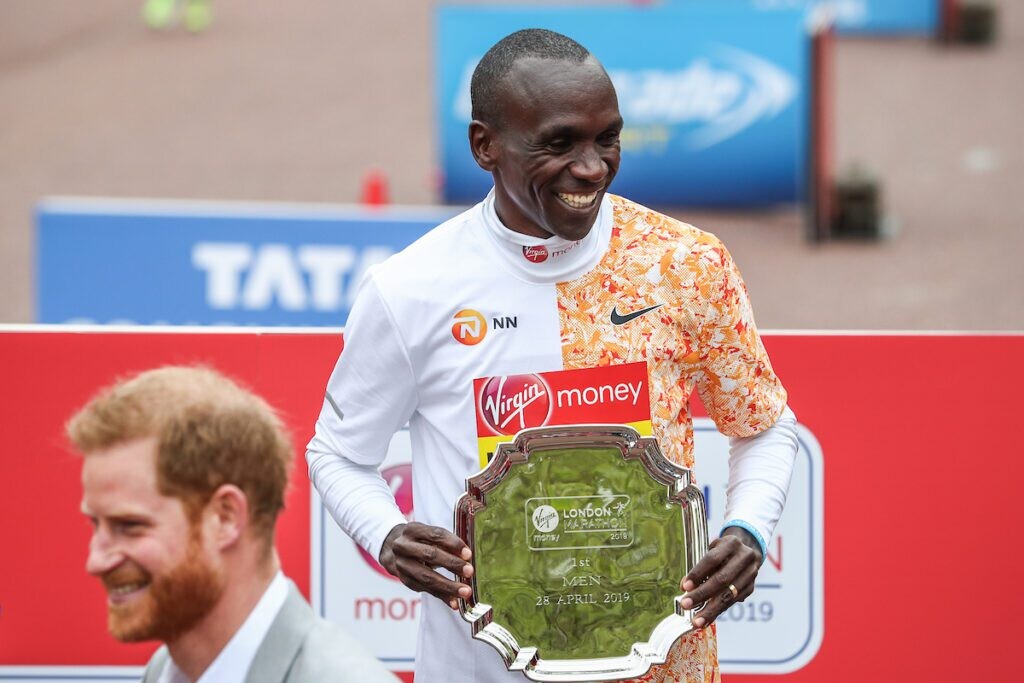
Fundamental skills
The psychologists deemed these skills as the most important, which is why they’re in the gold category.
Motivation: In particular, intrinsic motivation, which comes from within, rather than being dictated from someone or somewhere else. Intrinsic motivation results when someone has high levels of competence, relatedness and autonomy–i.e., they’re good at them and want to perform well for the sake of performing well, rather than for accolades or medals (even though those are usually be present also).
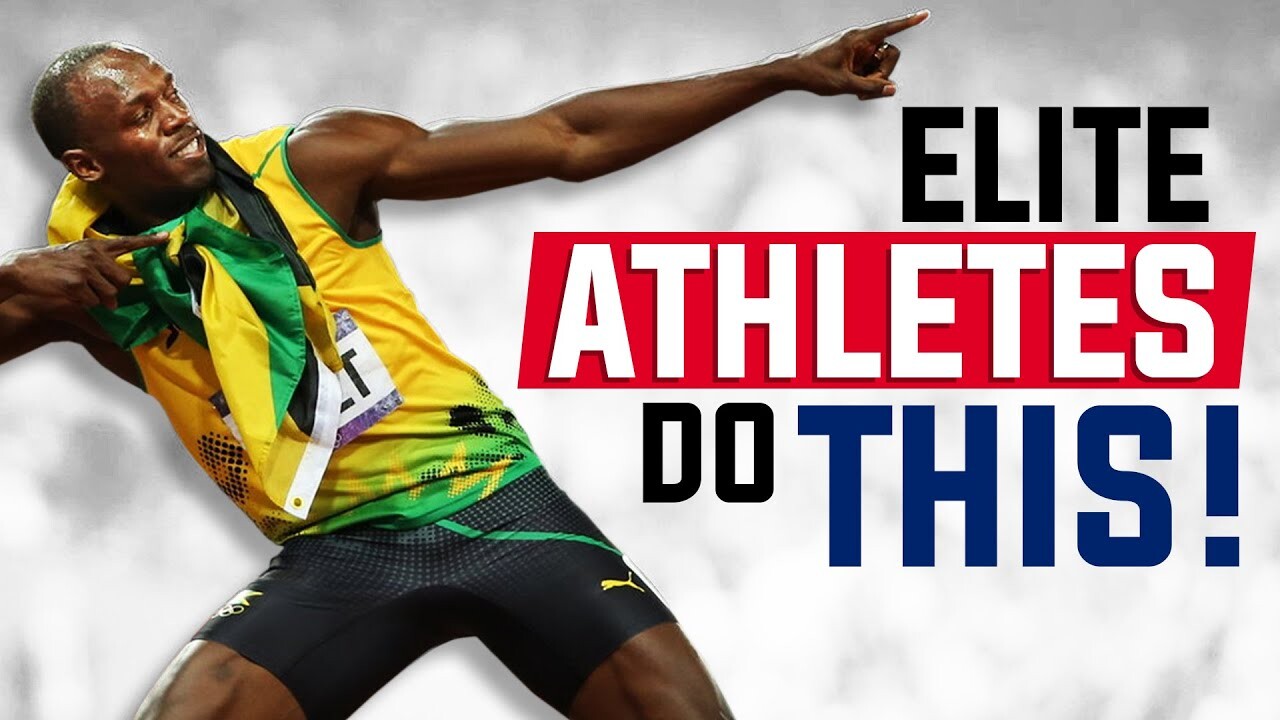
Confidence: You can watch countless interviews with athletes who have finally reached a career-long goal, and they all say something along the lines of: “I just knew I had it in me, I knew I could do it if I just kept at it.” If you believe you will achieve something, you’re much more likely to do so.
Resilience: Remember when Evan Dunfee made a heroic push to go from fifth to third in the final stretch of the men’s 50K race walk at the 2021 Olympics? Most of us would’ve counted ourselves out, but he didn’t. How many times have you watched an athlete fall in the first lap of a race, only to get up and storm back to take the win? Things don’t always go perfectly, but an athlete who can deal with and rise above adversity will always have the advantage.
Fundamental skills for recreational runners:
Don’t shy away from a challenge
Find a group to train with and keep you motivated
Believe in your ability to achieve your goal
Don’t throw in the towel just because conditions aren’t perfect or you encounter an injury or other setback
Self-regulation skills
These are in the silver category, and involve your ability to manage your thoughts and emotions in a way that helps (rather than hinders) achievement. They include mastering things like self-awareness, stress management, emotion and arousal regulation and attention control.
Self-regulation skills for recreational runners
Figure out what kind of psychological state you need to be in to perform well, and how “pumped up” you need to be before a workout or competition
Work on looking inwardly and understanding where you’re at psychologically at any given moment, so you can assess whether you’re “in the zone” or not
Figure out what tools you need (like deep breathing, upbeat music, etc.) to get yourself ready for competition
Practise focusing your attention on your body and its cues and filtering out distractions
Interpersonal skills
These are in the bronze category and describe how you deal with other people, like coaches, teammates and other competitors. They include aspects such as the athlete-coach relationship, leadership, teamwork and communication.
Interpersonal skills for recreational runners
Build yourself a good support system–get a coach or a dedicated running buddy, or join a running club
Communicate effectively with your coach or running friends. A good coach or running group can help you troubleshoot problems when you’re in a training rut.
(08/25/23) Views: 90Kiplangat's marathon victory completes golden 2023 treble for Uganda
In the end, as he approached the finishing curve in the sunbathed Heroes’ Square, Victor Kiplangat could afford to snatch his national flag and savour his golden moment at the end of the men’s marathon on the morning of the final day of action at the World Athletics Championships Budapest 23.
For the second time in Budapest, Uganda had a world-beating hero to acclaim, Joshua Cheptegei having claimed the men’s 10,000m crown on the track on day two. Add in Jacob Kiplimo’s victory at the World Cross Country Championships in Bathurst in February, and the former third force of East African distance running could celebrate a hattrick of global successes in 2023.
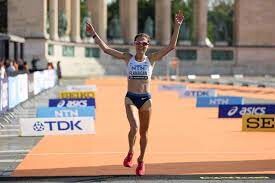
Kiplangat hit the gold standard on the international scene at the Commonwealth Games in Birmingham last year. Twelve months on, inspired by Kiplimo, the 23-year-old proved a class apart from the rest of the world, breaking clear from Ethiopia’s Leul Gebresilase with 3km to go and crossing the line in 2:08:53.The winning margin was 26 seconds and it was Israel’s Maru Teferi who claimed the silver, overtaking the tiring Gebresilase on the finishing curve to finish runner up in 2:09:12. In doing so, the 31-year-old – who was outsprinted for European gold by Germany’s Richard Ringer in Munich last year – was rewarded for a turbo-charged recovery after suffering a spectacular fall with 10km to go.
Gebresilase had to settle for bronze in 2:09:19, a disappointment for Ethiopia, who finished first and second in Doha in 2019 and in Oregon last year. His teammate Tamarit Tola, the decisive winner on the Oregon trail, was in the hunt until fading at 33km and eventually dropping out.
After Gebresilase came Lesotho's Tebello Ramakongoana, fourth in a PB 2:09:57, and then Kiplangat’s Ugandan teammate Stephen Kissa, who recovered from a fall of his own to finish fifth in 2:10:22.
“This has been my dream and it has come true at last,” said Kiplangat, the second Ugandan to take the title, following Stephen Kiprotich’s success in Moscow in 2013.
“Last year I was Commonwealth Games champion and that made me think this year I must become world champion. Now my prayers have been answered and hopefully next year in Paris I will become Olympic champion too.
“It was hard today because it was so hot but I felt comfortable because I prepared well for this weather. I knew it was possible because I had trained well. It was a dream and a mission and I did it today.
“When I reached 30km I knew I felt strong and decided to push. I had great energy and that allowed me to go. Then at 35km I could surge again. That was always my plan and I managed to do it.
“I need to thank Jacob Kiplimo. He has given me a lot of motivation and inspired me with his performances. I am so grateful as well for his advice and guidance. Without that, I couldn't have won today.”Without picking himself up so smartly, and moving directly into overdrive, the terrific Teferi would not have claimed a silver medal lining.
“I am glad I managed to fulfil my dream,” he said. “I fell down and tore my vest but I tried to move on to finish the race in the best possible condition.”
At the start of the race, Ser-Od Bat-Ochir set out like a bat out of hell. The 41-year-old Mongolian powered through the opening 1km in 2:57 and hit 3km in 8:55, 2:05 pace, building up a lead of 27 seconds.
The most experienced campaigner in the 83-man field, Bat-Ochir was competing in his 11th straight World Championships marathon, his debut having come in Paris when he was a sprightly 21-year-old back in 2003.
With a highest placing of 19th, in Daegu in 2011, and having finished 26th in Oregon a year ago, Bat-Ochir was never going to maintain his punishing early pace. His lifetime best of 2:08:50 dates back to 2014, his best this year being a more modest 2:24:46.
His determination could not be doubted. To acclimatise to cooler conditions for the Olympic marathon in London in 2012, he moved his family to the north-east of England for a year, training at Morpeth Harriers with some guidance from the great Jim Alder, winner of the Commonwealth Games marathon in 1966 and holder of the world track best for two hours since 1964.
Bat-Ochir kept his foot on the gas for a little while yet, passing 5km in 14:59, 35 seconds clear of Tola. Thereafter, however, the pace started to take its toll.
By 8km, his lead was down to 15 seconds and just past 9km he was swallowed by the pack of major players, with Kenya’s Timothy Kiplagat in the vanguard. Second in Rotterdam in April, the Kenyan led through 10km with a three-second advantage, but chose not to push on.Bat-Ochir started to pay the price for his bold effort. After passing 10km, he ground to a halt, clutching his right hamstring, stretching it out and starting again. Not that he was going to do a Sifan Hassan. After another couple of stops and re-starts, he hobbled off the course for good at 12km.
Meanwhile, back at the sharp end, Kenya’s Joshua Belet led through 15km in 46:09, upping the pace to match Bat-Ochir’s opening kilometre split of 2:57.
There were 30 men still in the lead pack at halfway, with Rwanda’s John Hakizimana at the front in 1:05:02. A surge from Kiplangat at a drinks station, however, succeeded in splintering the group.
Approaching 30km, Kiplangat injected a 2:54 split, drawing Tola towards the front for the first time.
The pack was down to six approaching Heroes’ Square for the penultimate time, then five when Kissa tripped and fell after clipping Kiplangat’s heels.
Then it was down to three: Kiplangat, Tola and Gebresilase. The Ugandan kept his foot down and just after 33km Tola started to drop.
After a split of 2:49, the fastest of the race, it was Kiplangat vs Gebresilase, Tola fading out of contention.
Kiplangat hammered away at the front, Gebresilase in his immediate slipstream, until the pressure finally told with 3km remaining. The Commonwealth Games champion opened a gap that swiftly grew into an unassailable one and Teferi also passed Gebresilase in the closing stages to secure the silver.
Uganda’s global distance running hattrick was securely in the bag.
(08/27/23) Views: 88Simon Turnbull for World Athletics
Runners: are you eating too much fibre?
Fibre is an important nutrient for our health, but it’s possible to go overboard with it. This is especially true for runners, who tend to be more susceptible to gastrointestinal discomfort. We spoke with Canadian sports dietitian Stephanie MacNeill to get the low-down on how much fibre runners really need, and the risks of eating too much.
Running can be hard on the gastrointestinal (GI) system for many reasons, including reduced blood flow to the gut, the bouncing motion of running and the diversion of blood flow from the gut toward the working muscles and skin, among other factors. This can lead to reduced oxygen and nutrient delivery to the GI tract, potentially causing discomfort and impaired digestion.

How much fibre should you eat?
MacNeill says the recommended fibre intake per day is 22 to 34 grams, depending on age and sex. “Everyone’s tolerance to fibre will vary, so even the recommended daily amount may be too much if you haven’t regularly been including fibre-rich foods in your diet,” she says. Increasing your fibre intake too suddenly can also cause GI distress, she adds. (High-fibre foods include beans, some vegetables including broccoli and whole grains–again, these are healthy foods, but be aware of how much you’re consuming in relation to other macronutrients.)

When you’ve got too much of a good thing
Eating too much fibre (or increasing your fibre intake too rapidly) can cause GI distress for anyone, but the problems could be worse for runners, since they’re already at greater risk for GI issues. MacNeill says that runners who consume too much fibre may experience the following:
Not consuming enough calories: Fibre helps add volume to meals, which can help promote satiety. If you rely too heavily on fibre, you may end up feeling too full to eat other foods, which may interfere with your ability to meet all your nutrition needs (fat, protein and micronutrients).
Becoming constipated: Overdoing fibre could lead to constipation. Because fibre absorbs water from the intestines, you should also make sure you’re staying hydrated by drinking enough water.
Experiencing gas and bloating: If you increase your fibre intake too quickly, it can cause uncomfortable gastrointestinal effects, including gas and bloating. If you’re trying to increase your fibre intake, do so slowly. You can try adding a few grams of fibre per week.
“Most of the time, having too much fibre causes temporary discomfort without serious harm,” says MacNeill. “However, in rare cases, too much fibre can lead to a blockage in the intestine, requiring medical attention. Currently, there isn’t a maximum daily recommended intake for fibre, so be cautious about greatly exceeding the recommendations for your sex and age group. Also, be mindful of how your body responds to a high fibre intake.”
Fibre recommendations for runners
Runners still do need to eat fibre; they just have to be careful about how, when, and how much they include it in their diet. Follow these guidelines to avoid GI distress:
Stay hydrated throughout the day to avoid constipation.
If you’re trying to increase fibre intake, do so slowly to avoid gas and bloating.
Make sure you’re eating enough calories to support your training. If you’re having trouble eating enough, monitor how much fibre you’re consuming and consider cutting back if it’s interfering with overall energy intake.
Avoid eating high-fibre foods in the hour or two before a run or workout.
Talk to a dietitian for more guidance about incorporating fibre into your diet.
(08/26/23) Views: 86Running Magazine
Temperatures rise in Budapest as men marathoners seek to make amends
After Kenya women marathoners failed to finish in the medal bracket, Kenya’s Timothy Kiplagat, Joshua Belet and Titus Kipruto are under pressure to make amends as they parade in the men’s race Sunday morning at the Heroes Square in Budapest.
The top Kenyan in the women’s race was Rosemary Wajiru in sixth place in 2:26:42 with Selly Cheyego finishing behind her in 2:27:09.
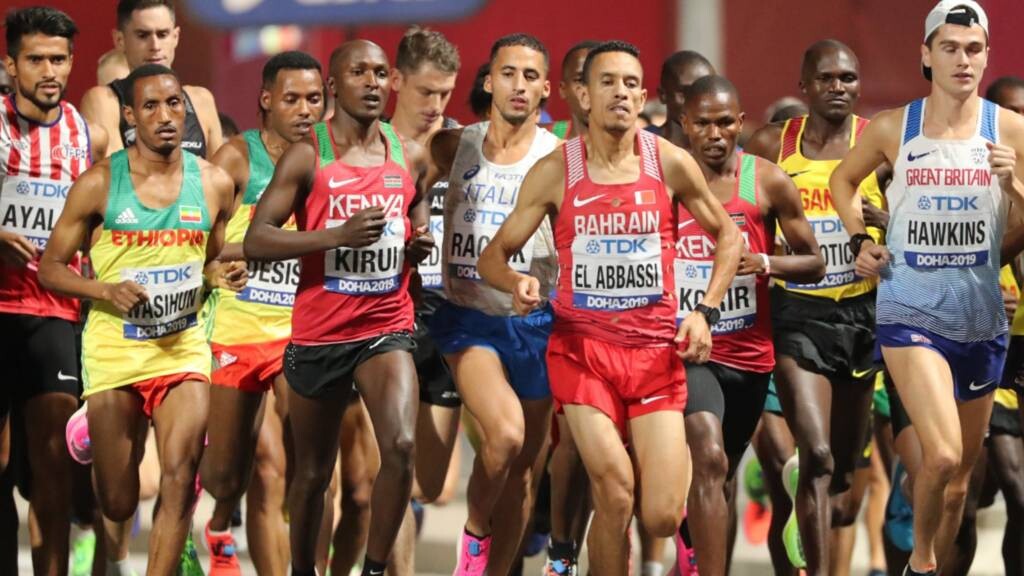
Kiplagat stands third on the world list with the 2:03:50 he posted as runner-up to Belgium’s Bashir Abdi in Rotterdam last April.
Belet was runner-up at the Hamburg Marathon in April in 2:04:33 while Kipruto was fourth at this year’s Tokyo Marathon in 2:05:32.
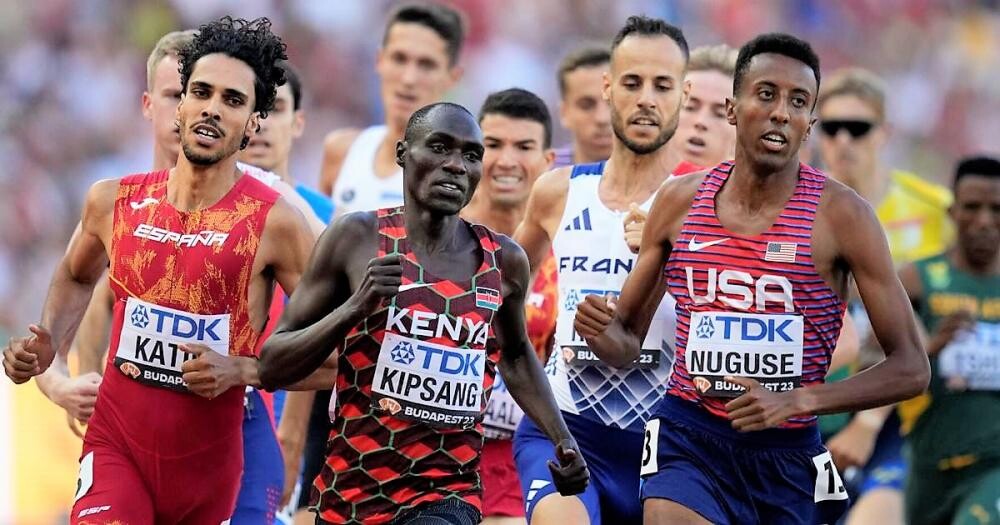
Kipruto set his personal best of 2:04:54 as runner-up in Amsterdam last year.
In an interview, Kiplagat said it would have been nice if the race started at 6 am in the morning.
All the same, he noted that if it doesn’t start early, he will still take it in his stride and give it his best shot.
He said they have been told to take a lot of water to remain hydrated and he hopes to do exactly that. He said he has prepared well and his target is to finish on the podium.
According o the organisers, Sunday is forecast to be the hottest day of the year in Hungary.
Last year, Tamirat Tola made World Championships history by running the fastest-ever winning time (2:05:36) in the men’s marathon.
The 31-year-old Ethiopian will be defending his title and has a chance to add his name to the list of a few marathoners who have succeeded in defending their title.
They include Spain’s Abel Anton (1997, 1999), Jaouad Gharib of Morocco (2003, 2005) and the Kenyan whose championship record Tola broke in Oregon, Abel Kirui (2009, 2011).
Tola, who was the marathon runner-up at the 2017 World Championships, has maintained his form this year, finishing third at the London Marathon in April in 2:04:59, behind Kelvin Kiptum (2:01:25) and Geoffrey Kamworor (2:04:23).
Neither of those two Kenyans will be on the start line in Budapest, leaving the defending champion to face two rivals from Kenya who have run faster than him this year.
Ethiopians have finished first and second at the last two World Championships and Tola will no doubt start as favourite.
Apart from Abdi Nageeye of the Netherlands, who was runner-up to Eliud Kipchoge in the 2021 Olympic marathon in Sapporo, the race looks much more like an East Africa affair. The 34-year-old also finished third in New York last November and in Rotterdam in April.
Tanzania’s Alphonce Felix Simbu is a seasoned major championship marathon campaigner. The 31-year-old earned world bronze in London in 2017 and Commonwealth silver in Birmingham last year.
He also finished fifth and seventh in the last two Olympic marathons. Commonwealth champion Victor Kaplangat is joined on the Ugandan team by Stephen Kissa, who set a national record of 2:04:48 in Hamburg last year.
There are a host of other sub-2:06 performers in the field including Israel’s European bronze medallist Gashu Ayale, Kaan Kigen Ozbilen of Turkey, Eritreans Goitom Kifle and Oqbe Kibrom, plus the Japanese duo Kenya Sonota and Ichitaka Yamashita.
(08/26/23) Views: 86Chris Mbaisi
USA dominates men’s 4x400m to win fourth relay gold in Budapest
Sometimes a country’s depth in a particular event doesn’t necessarily translate to a strong relay performance.
But other times – like for tonight’s men’s 4x400m final – it leads to pure domination.
The USA went in as the favourites and duly delivered their fourth relay gold of the championships, winning in a world-leading 2:57.31.
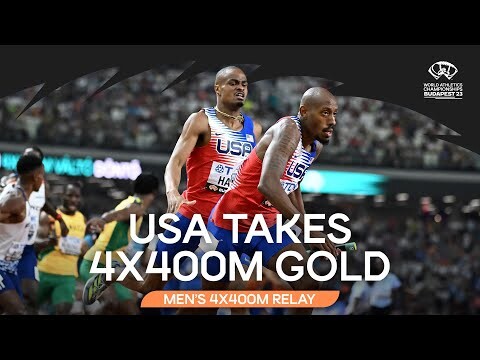
French athletics fans breathed a huge sigh of relief as their quartet came through to take silver – their first and only medal of the championships – in a national record of 2:58.45, holding off Great Britain (2:58.71).
As far as the race went, it was USA all the way. Quincy Hall, the 400m bronze medallist earlier in the week, gave them an early lead, handing over to Vernon Norwood, the fourth-place finisher in the 400m final.
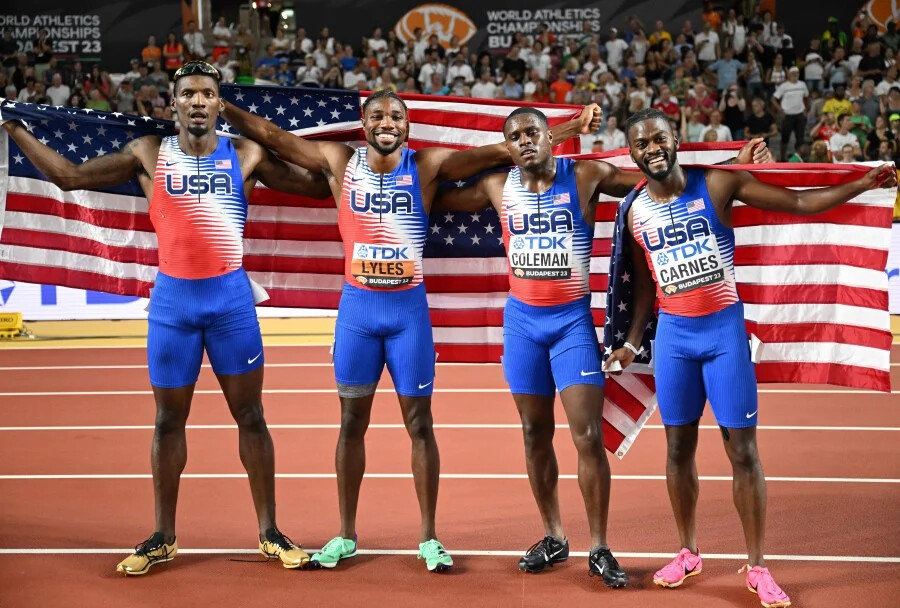
By the half-way point, they already had a comfortable lead over the rest of the field, all of whom were battling for the front of the chasing pack.
Justin Robinson, who was part of the victorious mixed 4x400m quartet on the first day of the championships, maintained USA’s led on leg three. By this point, France had moved into second place from Great Britain with Jamaica and Botswana in close pursuit.
Rai Benjamin, the 400m hurdles bronze medallist, extended USA’s lead on the last leg and went on to cross the line first in 2:57.31, earning USA’s ninth gold medal in the men’s 4x400m from the past 10 editions of the championships.
France’s anchor leg runner Teo Andant ran a strong lap to maintain his country’s standing in the race, taking silver in 2:58.45.
At one point it looked as though Antonio Watson, the individual 400m champion, would move Jamaica into a medal position, but Britain’s Rio Mitcham held on to third place, crossing the line in 2:58.71. Watson brought Jamaica home fourth in 2:59.34.
India, who had challenged USA in the heats, didn’t quite feature in the medal hunt and placed sixth in 2:59.92.
“I felt like I wasn't moving that fast but I'm happy these guys got me in a position to bring it home,” said Benjamin. “After the 400m hurdles, I wanted to come back and anchor this relay. It means a lot that the guys have faith in me and trust me. Quincy had an amazing start and the rest of the boys finished strong. I just had to finish the race. It was team work.”
(08/28/23) Views: 85World Athletics
The Kaua‘i Marathon takes off on Sept. 3
The Kaua‘i Marathon and Half Marathon is back on Sept. 3, and deadline for online registration at www.thekauaimarathon.com is 11:59 p.m. on Aug. 30.
“This 14th Kaua‘i Marathon world-class event provides the perfect three-day adventure for residents and visitors to experience Kaua‘i’s aloha spirit,” said Jeff Sacchini, the Kaua‘i Marathon founder.
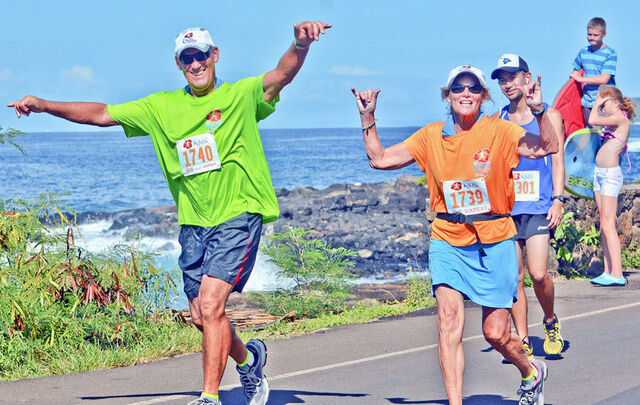
“Between the hundreds of volunteers who assist with race day duties to the Hawaiian blessing, Polynesian entertainment and cultural experiences along the course, The Kaua‘i Marathon and Half Marathon is a destination race to remember.”
The experience starts with the Wilcox Health Sports and Fitness Expo at the Grand Hyatt Kaua‘i Resort &Spa in Po‘ipu, where marathon participants pick up their race packets from 10 a.m. to 6 p.m. ahead of the Sunday run.
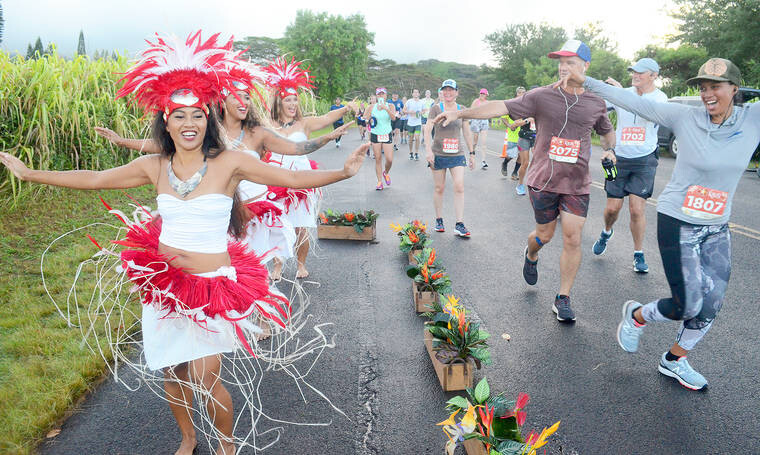
A sponsor reception rounds out Friday. The expo continues on Saturday from 9 a.m. to 4 p.m. with a Keiki Run starting at 9 a.m., and Family Fun Run chasing a very fast 6-foot chicken. The main races start Sunday morning at 6 a.m. at the front of Po‘ipu Shopping Village.
Traffic advisories, including various road closures, can be found in detail on the Kaua‘i Marathon website at www.kauaimarathon.com.
“We have some distinguished participants for this year’s marathon,” said Robin Jumper, the Kaua‘i event coordinator for The Kaua‘i Marathon. “Michael Wardian, a past champion and ultra runner from Delaware, will be doing the full marathon, and Tyler McCandless, a past champion and the spokesperson for the Kaua‘i Marathon Youth Running Program, will be doing the half marathon.”
Additionally, as COVID-19 conditions improve, at least two runners from Japan will be among this year’s Kaua‘i Marathon field.
Shinya Ohashi, who finished first in the 2018 version of the Kaua‘i Marathon with a run that stopped the clocks at 2 hours, 23 minutes, and 33 seconds, is from Ishinomaki City, Miyagi Prefecture, Japan. He was the male winner of the Iwaki Sunshine Marathon 2023, which attracted runners from Italy, Spain, United Kingdom, Thailand, Portugal and Vietnam in February.
Ohashi will be joined by Mirai Honma of Higashine City, Yamagata Prefecture, Japan, who was the female winner at the Iwaki Sunshine Marathon.
Since the inaugural Kaua‘i Marathon and Half Marathon, the island has hosted 10,232 participants from the mainland, 1,342 international runners, 3,590 participants from the neighbor islands and 8,077 from Kaua‘i.
According to the County of Kaua‘i, the direct economic impact over 14 years has equated to nearly $40 million. The Kaua‘i Marathon has donated more than $160,000 to local charities and nonprofit entities.
(08/25/23) Views: 84Dennis Fujimoto
Injured? Try these sports instead
Let’s face it–being injured sucks. What does a runner do when they can’t run? While most of us turn to cycling, pool running or swimming, there are other sports you can try if traditional cross-training methods just aren’t for you. What you’re able to do while you’re healing from an injury, of course, is very dependent on the nature of your injury, but the following suggestions might be good options for those who are looking to have a little fun in their unplanned off-season.
Hiking
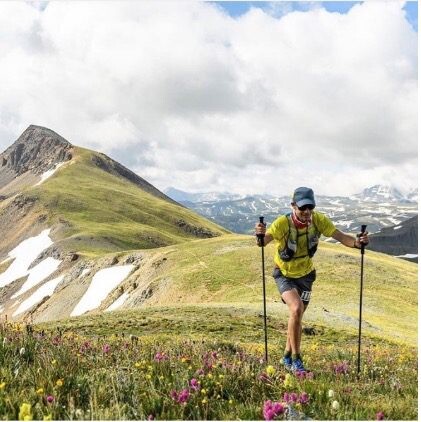
Take a walk, add some elevation change and nature, and you’ve got a hike! Many runners turn to walking while they’re injured, but if strolling around the neighbourhood doesn’t do it for you and you’re lucky enough to live in an area with trails (west coasters, we’re looking at you!) take advantage of it. The softer ground and constantly changing terrain will challenge your body in a different way, and if you’ve got mountains nearby, some steep climbs will help you return to running stronger.
Volleyball

Volleyball is a great option, because it doesn’t involve a lot of running. It may not help improve your running much, but since it’s played on teams, it’ll give you a chance to get out and socialize if it’s the camaraderie of your running group that you truly miss.
Pickleball
Tennis’s low-impact cousin has been taking the country by storm, and pickleball courts have been popping up in local parks everywhere. Pickleball requires much less running and lateral movement than tennis (which is likely not a great idea when you’re injured). It can be a lot of fun to play with a few friends, and serves as a great distraction while you take some time off from running.
Golf
Take a walk, add some sand traps and swing a stick around, and you’ve got golf! Forgo the cart and carry your bag, and suddenly you’ve also got a decent workout. Plus, it’s a great way to get outside for long periods, if it’s that fresh-air feeling that you miss when you’re on the sidelines.
Rock climbing
Want to improve your core strength while you’re out of the running game? Rock climbing is your answer. As a bonus, it’s also a good way to work on proprioception, which will have a positive effect on your running form when you return to your training.
Skiing
If you’re injured during the winter, why not use the weather to your advantage? Cross-country skiing, of course, will help you maintain (or even improve) your cardiovascular fitness without the impact of running, but alpine skiing can also improve your core and lower-body strength.
Yoga
OK, yoga isn’t exactly a sport, but it’s an excellent activity to do when you’re injured. It can improve your core strength, balance and proprioception, as well as teaching you how to control your breath and loosen tight muscles. And what runner doesn’t have tight muscles?
(08/25/23) Views: 82Brittany Hambleton


